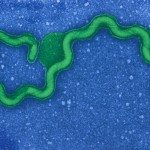Lien vers Pubmed [PMID] – 33609844
Lien DOI – S0048-9697(21)00609-410.1016/j.scitotenv.2021.145541
Sci Total Environ 2021 Feb; 774(): 145541
Leptospirosis is a waterborne zoonosis (60,000 infections and 1 million deaths annually). Knowledge about the disease in the urban context is surprisingly rare, especially in Africa. Here, we provide the first study of leptospires in waters within an African city. A simple centrifugation-based method was developed to screen waterborne leptospires from remote or poorly areas. Major ions, trace elements, stable isotopes and pathogenic Leptospira were then seasonally investigated in 193 water samples from three neighborhoods of Cotonou (Benin) with different socio-environmental and hydrographic characteristics. Firstly, no leptospire was detected in tap waters. Secondly, although surface contamination cannot be excluded, one groundwater well was found leptospire positive. Thirdly, pathogenic Leptospira mainly contaminated surface waters of temporary and permanent ponds (9.5% and 27.3% of total prevalence, respectively). Isotopic signatures suggest that leptospires occurred in pond waters formed at the beginning of the rainy season following low to moderate rainfall events. Nevertheless, Leptospira-containing waters possess physico-chemical characteristics that are similar to the spectrum of waters sampled throughout the three sites, thus suggesting that Cotonou waters are widely compatible with Leptospira survival. The frequent contact with water exposes Cotonou inhabitants to the risk of leptospirosis which deserves more attention from public health authorities.

